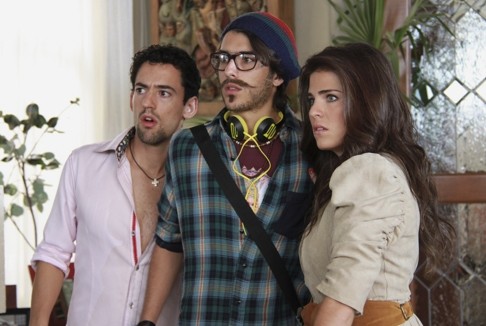
Mexico’s cinema revival continues with latest Oscars glory
Country’s film-making industry goes from strength to strength, winning prizes at every major film festival and awards ceremony
Call it cinema’s revenant: left for dead two decades ago, Mexico’s film industry is now thriving under a golden generation of film-makers who have scooped up Oscars for three years in a row.
Alejandro Gonzalez Inarritu became only the third director to win back-to-back Oscars, rewarded on Sunday for his survival epic The Revenant , a year after his triumph for Birdman .

All three films were shot by Mexican Emmanuel Lubezki, who made history by winning his third consecutive Oscar for best cinematography after shooting The Revenant in extreme winter conditions.
Inarritu, Cuaron and their friend Guillermo del Toro form “The Three Amigos” of Mexican directors who have conquered Hollywood.
But other less famous film-makers have won prizes at prestigious film festivals in Europe.
The five-year haul is impressive: Mexicans have won nine Oscars, four Golden Globes, three prizes at the Cannes film festival, two best film awards in Berlin and a Golden Lion in Venice.

“Rather than calling it a new wave, we should talk about several waves,” says Jean-Christophe Berjon, film critic and former advisor at the Cannes film festival.
The “Three Amigos” created their own production firm, Cha Cha Cha films, in 2009.
“There is a special relationship between them, a very stimulating exchange,” says Daniela Michel, director and co-founder of a film festival in the Mexican western city of Morelia.
“They show their films to each other during editing and they sometimes produce each other’s work,” she says.


Roth, during a visit to Mexico in October, said the country’s film industry was going through an “incredible” period.
“I think it’s the energy; there’s a whole new group of young filmmakers whose cinematic vocabulary is extraordinary,” he said at the Morelia festival, according to US film publication Variety.
He was promoting another Mexican-made film he starred in, the drug cartel flick 600 Miles directed by Gabriel Ripstein.
Home-grown productions have soared in the past decade thanks to tax incentives, which have encouraged all sorts of companies to invest in films.
Mexican cinema enjoyed a golden era between the 1930s and 1950s, with legendary film-maker Luis Bunuel heading that generation.
But the industry went through a quiet period marked by a series of comedies panned by critics, and barely any movies were made in the 1990s.
“Short films kept Mexican cinema alive for years,” says Michel, who created the Morelia festival to encourage young film-makers.
However, Mexicans still spend more at the cinema on Hollywood blockbusters than domestic fare.
“Only one-third of films that are produced (in Mexico) come out in theatres,” Berjon says, adding that while directors like Escalante are making a name for themselves in Europe, they are not really known in their own country.

But two movies managed to break box-office records in the same year in 2013 with the comedies Instructions Not Included and We Are the Nobles.

Agence France-Presse

.png?itok=arIb17P0)